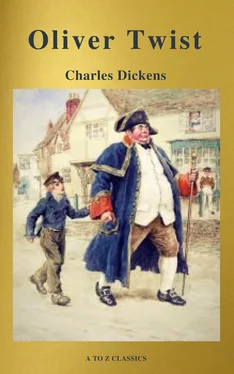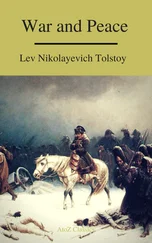Chapter 52 Involving a serious Change in the Weller Family, and the untimely Downfall of Mr. Stiggins
Chapter 53 Comprising the final Exit of Mr. Jingle and Job Trotter, with a great Morning of business in Gray’s Inn Square—Concluding with a Double Knock at Mr. Perker’s Door
Chapter 54 Containing some Particulars relative to the Double Knock, and other Matters: among which certain interesting Disclosures relative to Mr. Snodgrass and a Young Lady are by no Means irrelevant to this History
Chapter 55 Mr. Solomon Pell, assisted by a Select Committee of Coachmen, arranges the affairs of the elder Mr. Weller
Chapter 56 An important Conference takes place between Mr. Pickwick and Samuel Weller, at which his Parent assists—An old Gentleman in a snuff–coloured Suit arrives unexpectedly
Chapter 57 In which the Pickwick Club is finally dissolved, and everything concluded to the Satisfaction of Everybody
The Pickwick Papers
Charles Dickens
Published:1832 Categorie(s):Fiction
Chapter 1 The Pickwickians
The first ray of light which illumines the gloom, and converts into a dazzling brilliancy that obscurity in which the earlier history of the public career of the immortal Pickwick would appear to be involved, is derived from the perusal of the following entry in the Transactions of the Pickwick Club, which the editor of these papers feels the highest pleasure in laying before his readers, as a proof of the careful attention, indefatigable assiduity, and nice discrimination, with which his search among the multifarious documents confided to him has been conducted.
‘May 12, 1827. Joseph Smiggers, Esq., P.V.P.M.P.C. [Perpetual Vice–President—Member Pickwick Club], presiding. The following resolutions unanimously agreed to:—
‘That this Association has heard read, with feelings of unmingled satisfaction, and unqualified approval, the paper communicated by Samuel Pickwick, Esq., G.C.M.P.C. [General Chairman—Member Pickwick Club], entitled “Speculations on the Source of the Hampstead Ponds, with some Observations on the Theory of Tittlebats;” and that this Association does hereby return its warmest thanks to the said Samuel Pickwick, Esq., G.C.M.P.C., for the same.
‘That while this Association is deeply sensible of the advantages which must accrue to the cause of science, from the production to which they have just adverted—no less than from the unwearied researches of Samuel Pickwick, Esq., G.C.M.P.C., in Hornsey, Highgate, Brixton, and Camberwell—they cannot but entertain a lively sense of the inestimable benefits which must inevitably result from carrying the speculations of that learned man into a wider field, from extending his travels, and, consequently, enlarging his sphere of observation, to the advancement of knowledge, and the diffusion of learning.
‘That, with the view just mentioned, this Association has taken into its serious consideration a proposal, emanating from the aforesaid, Samuel Pickwick, Esq., G.C.M.P.C., and three other Pickwickians hereinafter named, for forming a new branch of United Pickwickians, under the title of The Corresponding Society of the Pickwick Club.
‘That the said proposal has received the sanction and approval of this Association. ‘That the Corresponding Society of the Pickwick Club is therefore hereby constituted; and that Samuel Pickwick, Esq., G.C.M.P.C., Tracy Tupman, Esq., M.P.C., Augustus Snodgrass, Esq., M.P.C., and Nathaniel Winkle, Esq., M.P.C., are hereby nominated and appointed members of the same; and that they be requested to forward, from time to time, authenticated accounts of their journeys and investigations, of their observations of character and manners, and of the whole of their adventures, together with all tales and papers to which local scenery or associations may give rise, to the Pickwick Club, stationed in London.
‘That this Association cordially recognises the principle of every member of the Corresponding Society defraying his own travelling expenses; and that it sees no objection whatever to the members of the said society pursuing their inquiries for any length of time they please, upon the same terms.
‘That the members of the aforesaid Corresponding Society be, and are hereby informed, that their proposal to pay the postage of their letters, and the carriage of their parcels, has been deliberated upon by this Association: that this Association considers such proposal worthy of the great minds from which it emanated, and that it hereby signifies its perfect acquiescence therein.’
A casual observer, adds the secretary, to whose notes we are indebted for the following account—a casual observer might possibly have remarked nothing extraordinary in the bald head, and circular spectacles, which were intently turned towards his (the secretary’s) face, during the reading of the above resolutions: to those who knew that the gigantic brain of Pickwick was working beneath that forehead, and that the beaming eyes of Pickwick were twinkling behind those glasses, the sight was indeed an interesting one. There sat the man who had traced to their source the mighty ponds of Hampstead, and agitated the scientific world with his Theory of Tittlebats, as calm and unmoved as the deep waters of the one on a frosty day, or as a solitary specimen of the other in the inmost recesses of an earthen jar. And how much more interesting did the spectacle become, when, starting into full life and animation, as a simultaneous call for ‘Pickwick’ burst from his followers, that illustrious man slowly mounted into the Windsor chair, on which he had been previously seated, and addressed the club himself had founded. What a study for an artist did that exciting scene present! The eloquent Pickwick, with one hand gracefully concealed behind his coat tails, and the other waving in air to assist his glowing declamation; his elevated position revealing those tights and gaiters, which, had they clothed an ordinary man, might have passed without observation, but which, when Pickwick clothed them—if we may use the expression—inspired involuntary awe and respect; surrounded by the men who had volunteered to share the perils of his travels, and who were destined to participate in the glories of his discoveries. On his right sat Mr. Tracy Tupman—the too susceptible Tupman, who to the wisdom and experience of maturer years superadded the enthusiasm and ardour of a boy in the most interesting and pardonable of human weaknesses—love. Time and feeding had expanded that once romantic form; the black silk waistcoat had become more and more developed; inch by inch had the gold watch–chain beneath it disappeared from within the range of Tupman’s vision; and gradually had the capacious chin encroached upon the borders of the white cravat: but the soul of Tupman had known no change—admiration of the fair sex was still its ruling passion. On the left of his great leader sat the poetic Snodgrass, and near him again the sporting Winkle; the former poetically enveloped in a mysterious blue cloak with a canine–skin collar, and the latter communicating additional lustre to a new green shooting–coat, plaid neckerchief, and closely–fitted drabs.
Mr. Pickwick’s oration upon this occasion, together with the debate thereon, is entered on the Transactions of the Club. Both bear a strong affinity to the discussions of other celebrated bodies; and, as it is always interesting to trace a resemblance between the proceedings of great men, we transfer the entry to these pages.
‘Mr. Pickwick observed (says the secretary) that fame was dear to the heart of every man. Poetic fame was dear to the heart of his friend Snodgrass; the fame of conquest was equally dear to his friend Tupman; and the desire of earning fame in the sports of the field, the air, and the water was uppermost in the breast of his friend Winkle. He (Mr. Pickwick) would not deny that he was influenced by human passions and human feelings (cheers)—possibly by human weaknesses (loud cries of “No”); but this he would say, that if ever the fire of self–importance broke out in his bosom, the desire to benefit the human race in preference effectually quenched it. The praise of mankind was his swing; philanthropy was his insurance office. (Vehement cheering.) He had felt some pride—he acknowledged it freely, and let his enemies make the most of it—he had felt some pride when he presented his Tittlebatian Theory to the world; it might be celebrated or it might not. (A cry of “It is,” and great cheering.) He would take the assertion of that honourable Pickwickian whose voice he had just heard—it was celebrated; but if the fame of that treatise were to extend to the farthest confines of the known world, the pride with which he should reflect on the authorship of that production would be as nothing compared with the pride with which he looked around him, on this, the proudest moment of his existence. (Cheers.) He was a humble individual. (“No, no.”) Still he could not but feel that they had selected him for a service of great honour, and of some danger. Travelling was in a troubled state, and the minds of coachmen were unsettled. Let them look abroad and contemplate the scenes which were enacting around them. Stage–coaches were upsetting in all directions, horses were bolting, boats were overturning, and boilers were bursting. (Cheers—a voice “No.”) No! (Cheers.) Let that honourable Pickwickian who cried “No” so loudly come forward and deny it, if he could. (Cheers.) Who was it that cried “No”? (Enthusiastic cheering.) Was it some vain and disappointed man—he would not say haberdasher (loud cheers)—who, jealous of the praise which had been—perhaps undeservedly—bestowed on his (Mr. Pickwick’s) researches, and smarting under the censure which had been heaped upon his own feeble attempts at rivalry, now took this vile and calumnious mode of—
Читать дальше












